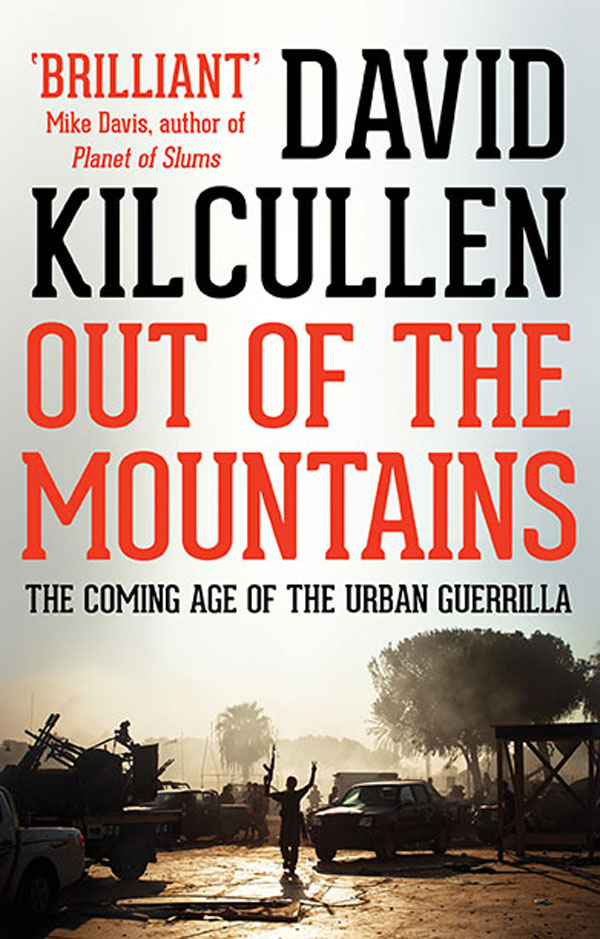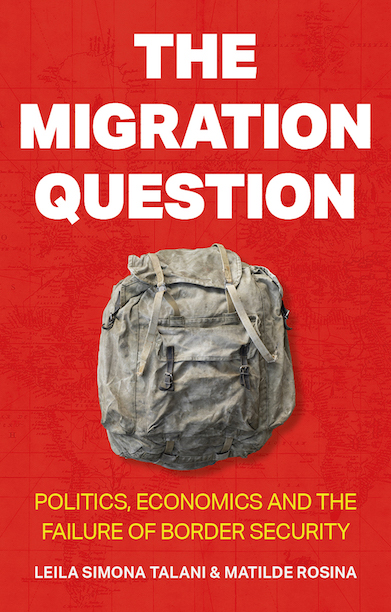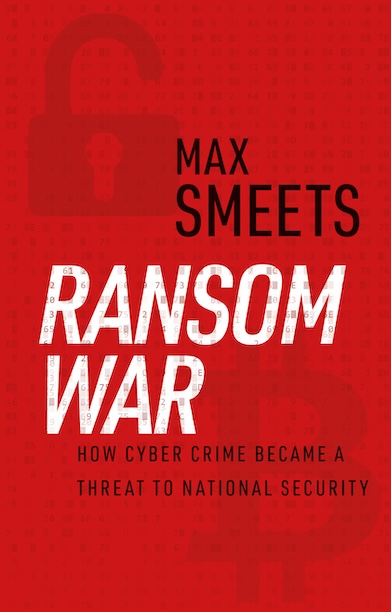Out of the Mountains
The Coming Age of the Urban Guerrilla
‘A brilliant book by the most unfettered and analytically acute mind in the military intelligentsia.’ — Mike Davis, author of ‘Planet of Slums’
Description
In his third book, David Kilcullen takes us out of the mountains: away from the remote, rural guerrilla warfare of Afghanistan, and into the marginalised slums and complex security threats of the world’s coastal cities, where almost 75 per cent of us will be living by mid-century. Scrutinising major environmental trends — population growth, coastal urbanisation — and increasing digital connectivity, he projects a future of feral cities, urban systems under stress, and increasing overlaps between crime and war, internal and external threats, and the real and virtual worlds. Informed by Kilcullen’s own fieldwork in the Caribbean, Somalia, the Middle East and Afghanistan, and that of his field research teams in cities in Central America and Africa, Out of the Mountains presents detailed, on-the-ground accounts of the new faces of modern conflict –– from the 2008 Mumbai terrorist attacks, to transnational drug networks, local street gangs, and the uprisings of the Arab Spring.
Table of contents
Introduction: Ambush in Afghanistan
1. Out of the Mountains
2. Future Cities, Future Threats
3. The Theory of Competitive Control
4. Conflict in Connected Cities
5. Crowded, Complex, and Coastal
Appendix : On War in the Urban, Networked Littoral
Reviews
‘This is a brilliant book by the most unfettered and analytically acute mind in the military intelligentsia. Kilcullen unflinchingly confronts the nightmare of endless warfare in the slums of the world.’ — Mike Davis, author of Planet of Slums
‘An iconoclastic new book on future urban conflicts.’ — David Ignatius, Washington Post
‘The nature of future conflicts with both state and non-state enemies, and the kind of weapons that will be used, is spelled out in a new book by the perceptive and thoughtful counterinsurgency expert David Kilcullen. … Out of the Mountains is a warning of the vulnerability of what he calls “feral cities”, of coastal ones in particular, faced with hit-and-run attacks, ambushes, snipers, and bombings.’ — The Guardian
‘The foundation of Out of the Mountains is Mr. Kilcullen’s “theory of competitive control,” which zooms in on the insurgent networks that other theories glance at from a bird’s-eye perspective. The theory suggests that “populations respond to a predictable, ordered, normative system, which tells them exactly what they need to do, and not do, in order to be safe.” Remove that normative system, and chaos could easily ensue… The answers to the questions Mr. Kilcullen poses will evolve over time. But his insistence that it is “time to drag ourselves—body and mind—out of the mountains” serves as a reminder that complacency remains one of the most serious threats to U.S. national security.’ — Wall Street Journal
‘Paints a dystopian picture of endless warfare in impoverished cities.’ — New Frame
‘David Kilcullen brilliantly illuminates a coming dystopian urban world, part Blade Runner and part Minority Report. He cogently argues that we must rapidly find a way to build our own security networks to prepare for the coming age of urban guerrillas. Out of the Mountains crystallizes this sadly probable future in vivid and practical terms.’ — Admiral James Stavridis, USN (Ret), Former Supreme Allied Commander at NATO and Dean, The Fletcher School of Law and Diplomacy, Tufts University
‘Drawing on a lifetime’s practical and theoretical expertise in counter-insurgency and irregular warfare, David Kilcullen considers the security problems likely to be posed by the growth of littoral megacities where governments will find their authority challenged by a range of non-state armed groups. As this book eloquently argues, dealing with the insecurities that will inevitably arise from such situations will require militaries to adopt very different approaches and to work within a framework in which many different civilian skills are brought to bear. Anyone who has responsibilities for international security or who cares about the future of governance in an increasingly over-crowded and resource-stressed world needs to read this book.’ — Nigel Inkster, former director of operations and intelligence for the British Secret Intelligence Service
‘There is no better guide to the future of warfare than David Kilcullen. Surveying the scene from Mumbai to Mogadishu, and Syria to San Pedro Sula, Kilcullen persuasively argues that conflict will increasingly be in “crowded, coastal, and connected cities.” This is a gripping and essential read.’ — Theo Farrell, Head of War Studies, King’s College London
‘David Kilcullen has given us a definitive analysis of the characteristics of much recent conflict with its overlapping mix of terrorism and insurgency, gangsterism and racketeering, legitimate and criminal business, tribal and gang rivalries and perverse economic incentives. He draws striking lessons from the difficulties of providing security and governance in those circumstances and projects them into the ever more crowded slums of the mega-cities now sprawling along the coastlines of the developing world. His sombre conclusions should be essential reading.’ — Sir David Omand, former UK Security and Intelligence Coordinator
‘Kilcullen is a natural storyteller with a sharp and sympathetic mind. His first-hand experiences in Somalia, Afghanistan and elsewhere carry added credibility given his track record as a senior adviser to David Petraeus, the star US general in Iraq, and later to Nato in Afghanistan. Thankfully, he does not limit himself to dire warnings. He broaches solutions. It would be a start, he contends, if policymakers and security strategists approached the world’s mega-cities as living entities to be analysed in their own right, not fixed locations, or part of a nation state. We have to keep up with the pace of their transformation.’ —The Daily Telegraph
‘A wide-ranging, astute and squirm-inducing evaluation of the future of military operations. … Kilcullen delivers a lucid, important study that American leaders should read.’ —Kirkus
‘This is the mature work of someone who’s thought long and hard about conflict. Out of the Mountains deserves to be read (and argued about) by anyone who is interested in the war or the shape of the modern world [and] every officer needs to be familiar with its arguments.’ — Sydney Morning Herald
‘Kilcullen has a rare ability to combine serious theory with the insight of an experienced practitioner … [and] brings his narrative to life by using contemporary examples, including the recent revolts in Libya and Syria and the 2008 terrorist attacks in Mumbai.’ — Lawrence D. Freedman, Foreign Affairs
‘Soldiers and scholars both listen to Kilcullen—and now the development community should as well … He comes out of the mountains and plunges head first into the teeming megacities of the developing world. It is well worth following him there.’ — International Affairs
‘At a time when many Western militaries are slashing defence budgets while increasing investments in high-tech weapons, Kilcullen’s book provides an argument for reassessing defence priorities…This is an important book. ‘— H.R. McMaster, Survival
‘Out of the Mountains is a wide-ranging, thought-provoking book that draws on and synthesises concepts and arguments from geography, ecology, political science, sociology and military strategy … it will spawn ideas, and pull our attention to the emerging megacities of the world and their assorted urban guerillas.’ — Shashank Joshi, Global: The International Briefing
Author(s)

David Kilcullen is an author, an expert on unconventional and guerrilla warfare, and a former soldier and diplomat. He was a senior counterinsurgency adviser during the Iraq and Afghanistan wars. His previous books with Hurst include The Accidental Guerrilla; Blood Year; and Out of the Mountains.






